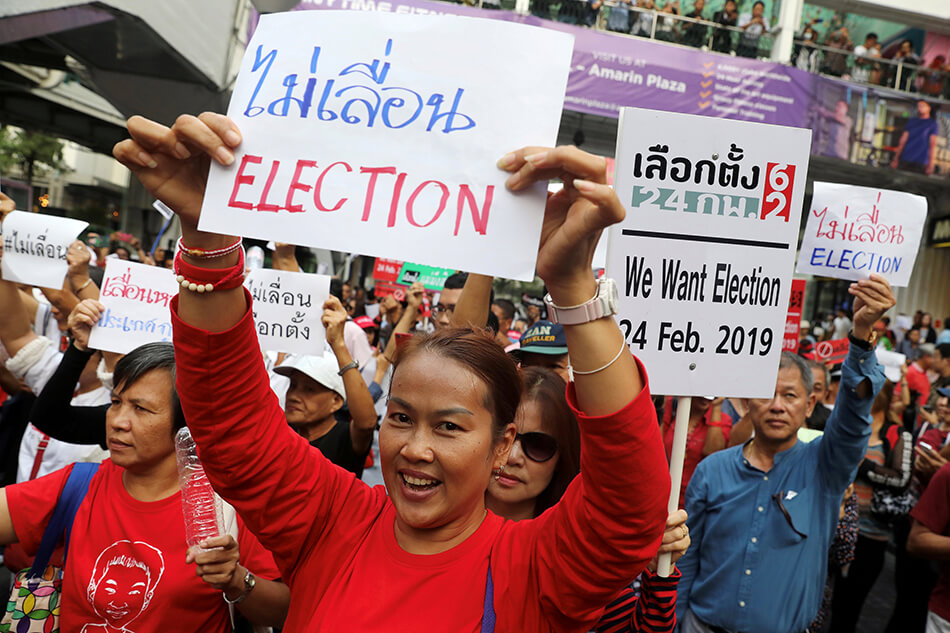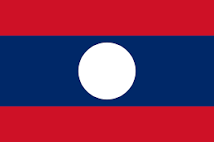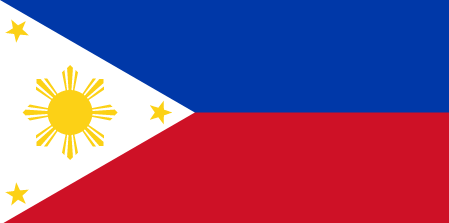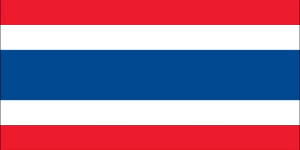March 29, 2019

Activists and university students gather to demand the first election in Thailand, since the military seized power in a 2014 coup, Jan. 8, 2019. Jorge Silva, Reuters

Prince Charles and Camilla visited Cuba this week, making them the first members of the royal family to visit the country for official reasons. The visit was organized in order to ease tensions between the U.K. and Cuba, who have been rivals in the past. While their visit was criticized by US Senator Rick Scott, who publicly asked the Prince of Wales to cancel the trip, Charles released a statement saying they hoped to showcase “cultural links between the two countries”.

Amnesty International released a statement encouraging the international community’s support of Costa Rica in taking Nicaraguan refugees escaping the human rights crisis under Daniel Ortega’s government. There are currently 42,000 Nicaraguan refugees in Costa Rica that require international protection, according to the United Nations High Commissioner for Refugees. Around 23,000 have started the application process to achieve refugee status in the country. Erika Guevara-Rosas, Americas director of Amnesty International stated, “Forced migration is a consequence of the serious human rights crisis in Nicaragua. The impact of President Ortega’s government’s repressive strategies is clear even in Costa Rica”.

North Korean officials have returned to the demilitarized zone days after saying they would withdraw from the peace process with South Korea. Analysts have said that the initial move to pull out from the peace process could have been triggered by the deteriorating relationship with the United States following the failed denuclearization summit last month. Kim Jong Un’s decision to return workers to the liaison office came shortly after President Trump tweeted that he had ordered the Treasury Department to stop “additional large scale sanctions” against North Korea.
A top US official also announced this week that along with escalating concerns coming from North Korea’s refusal to denuclearize, the United States may not be able to see an attack coming. Because of a lack of “sufficient intelligence, surveillance, and reconnaissance capabilities on the Korean peninsula”, the US would be unprepared for an attack, if it were to happen.

This week, Myanmar was urged by the UN Human Rights Council “to end immediately violence and violations of international law” in the Rakhine, Kachin, and Shan states. An extension of the mandate of the special rapporteur on the human rights situation in Myanmar has been implemented by the council.
Reuters reporters Wa Lone and Kyaw Soe Oo were arrested in December 2017, and have been imprisoned for 15 months after being found guilty under the Official Secrets Act. The reporters were sentenced to seven years in prison, a conviction that was denounced, as expected, by both press freedom advocates and Western diplomats. Myanmar’s Supreme Court ruled on an appeal of the journalists on Tuesday, but Supreme Court Justice Soe Naing adjourned the meeting without giving a final date for the ruling.

The long-awaited Robert Mueller report on potential collusion between Russia and President Donald Trump’s campaign was released to U.S. Attorney General William Barr this week. Barr’s summary of the report was sent to Congress two days after it was released, but a committee of House democrats have requested that the full report be given to Congress by April 2. The House also voted unanimously that the report be released to Congress and the public in its entirety. Barr has said that he will not be able to release the full report by April 2, prompting the House Intelligence Committee to consider subpoenaing Mueller as a last resort.
In the summary of Mueller’s report, it was stated that there was no evidence of Trump’s campaign conspiring or coordinating with the Russian government to influence the 2016 election. Throughout the course of the investigation, the special counsel also “indicted or got guilty pleas from 34 people and 3 companies”, including 6 former Trump advisors.

This week the Cambodian court issued warrants for the arrest of eight opposition leaders, one of which being Sam Rainsy, founder of the Cambodia National Rescue Party (CNRP) on treason charges. Mu Sochua and Eng Chhay Eang, vice-presidents, were also named. Kem Sokha, Cambodia National Rescue Party Chief’s request to drop treason charges was denied, despite his being held for over a year in pre-trial detention. Kem Sokha’s legal team has cited lack of proper evidence in their request to drop charges.
Cambodia has possibly taken a positive step towards recognition of land rights in their decision this week to return land taken a decade ago from indigenous communities, used for a Vietnamese company’s rubber plantation. Dam Chanty, executive director of Highlanders Association, an indigenous rights organization, stated that the decision, “represents an unprecedented recognition of indigenous land rights over business interests in Cambodia”.

Mexican President Andres Manuel Lopez Obrador announced this week that many social welfare programs would lose funding in an effort to end corruption. The move to cut funding from this area will shut down thousands of soup kitchens, child daycare centers, and shelters for women fleeing domestic violence. The decision came as a surprise to many, as, until now, the president has always championed helping the poor and disadvantaged.
Immigration officials said Thursday that the situation at the US-Mexico border has reached a breaking point. The Customs and Border Protection commissioner declared an “operational crisis” this week due to the surge in asylum-seekers arriving at the border over the past few months. With the large numbers of people waiting to get across the border into the United States, Mexico’s border towns have had their resources drained. As a result, the facilities for migrants are also in a state of constant overcrowding and deterioration.

67 employers in the Maldives are being accused of inconsistencies with the recruiting process of foreign workers, specifically Bangladeshis. A total of 27 companies are being criticized for “neglecting their responsibilities” related to foreign workers. Administrative action has been taken against the companies. It has been estimated that out of a migrant population of 144,607, around 63,000 work illegally.

Despite efforts to save their failing currency from plunging in the black market, the RTGS$ has fallen to 4.2 per one US dollar. This is the weakest that the currency has been valued in over five months. Formal trading of this currency began last month, with its valuation at 2.50 USD initially, though it quickly dropped to 3 USD. While officials had hoped that recognizing the the RTGS$ as not equal to a US dollar would stop the trading on the black market, a shortage of currency in the interbank market has forced many businesses to turn back to the black market.

United Nations rapporteur on poverty, Philip Alston, has urged Laos to focus on developing resources that will help children and poor rather than focusing on the foreign-invested dam and railway contracts. Phetvanxay, foreign minister of Laos, objected to these statements, saying, “some of the information that you received might be biased. Also, NGOs might have hidden agendas”.
This week, a North Korean diplomat arrived in Beijing and is reportedly scheduled to visit Laos. Foreign affairs experts credit this to being the result of the failed denuclearization summit with the United States, as North Korea eagerly attempts to ease economic sanctions imposed by the international community.

The number of ebola cases in the DRC has now surpassed 1000 since the outbreak began in August last year. Of those cases, at least 639 people have died. Just this week, 58 more people were diagnosed with the disease, reaching a new high-per-week in 2019. Despite the growing number of people affected, health workers in the DRC say that the biggest obstacle they face is the mistrust coming from much of the public. In a survey last year, 1 in 4 people said that they didn’t believe ebola was real. The disbelief coming from the community has led to many people refusing vaccines and treatment, as well as hiding their symptoms. In the past few months, multiple clinics set up for treating ebola have also been burnt down by disbelieving community members. The World Health Organization has confirmed that this is now the second-deadliest ebola breakout in history.

The UNHCR has commended Colombia’s reaction to the political crisis in Venezuela, calling theirs a “generous open border policy and a series of status regularization measures and facilitating access to basic services”, but have stated that the “humanitarian needs have overwhelmed the country’s reception capacity”. Humanitarian aids have cited the lack of mental health facilities for Venezuelan refugees, following a reported 216 suicide attempts among Venezuelan refugees in 2018 alone. The UN Refugee Agency, UNHCR, and Colombian authorities have been attempting to open reception centers to offer full support of vulnerable and at-risk refugees, but many are finding the task extremely daunting.
Colombian social leaders will travel to the International Criminal Court (ICC) on April 5th to demand the court to investigate the killings of social leaders by the Colombian state. Between 2016 and 2019, 547 Colombian social leaders have been murdered, according to a human rights report.

Two Russian military planes landed in Caracas on Saturday, carrying dozens of troops and equipment. Eyewitnesses at the airport said they saw at least 100 soldiers and “35 tonnes of equipment” being unloaded from the planes. While it is unclear what equipment was delivered to Venezuela it is clear that Russia is flexing its influence and power within Venezuela over the United States. In response to Russia’s actions, US President Trump has called for them to remove their troops, and reiterated that “all options” are on the table for making that happen.
Meanwhile, electricity outages continue to affect the country, as the second major blackout has now begun. Maduro has once again called the blackout an “attack” by Guaido and the opposition, but for residents in Venezuela’s rural areas, this is the norm. While intermittent electricity and blackouts are common outside of Caracas, these problems are now beginning to affect the major city as Venezuela’s infrastructure quickly falls apart. In response, Guaido has called on his supporters to protest these blackouts, arguing that the failures are caused by decades of corruption and underinvestment.

A report released on Wednesday by the Human Rights Commission of Malaysia and Fortify Rights stated that they had “found reasonable grounds to believe that a human-trafficking syndicate committed crimes against humanity in Malaysia and Thailand between 2012 and 2015, against Rohingya men, women and children”. This report comes four years after 139 graves of Rohingya and Bangladeshis were found in Malaysia, all of which were victims of human trafficking, yet there have been no prosecutions made of Malaysians involved.
Thailand, in comparison, found a mass grave of 30 bodies in the spring of 2015, leading to the conviction of 62 defendants and 9 Thai government officials.

Philippine journalist Maria Ressa has been arrested again, reportedly for her website’s criticism of President Duterte’s aggressive drug crackdown. Ressa, in addition to her website Rappler have been hit with a number of criminal charges, shocking and creating fear within the Philippine media community. Ressa was able to post bail – her seventh time having to do so. Her website and its officials now face 11 charges.

Thailand’s historic and long anticipated election was held on Sunday, March 24, the first election in the country since the power coup in 2014, but the results have elicited both confusion and disappointment with the Election Commission. The Election Commission delayed the results, without giving any proper explanation for the continued delays. By Monday, Thai news reports cited figures from the Election Commission which had different results for the number of seats each party had actually won. Many also questioned the reported voter turnout, as there were over 50 million people eligible to vote but the turnout rate was a reported 64%.
On Wednesday, seven Thai parties announced their formation of a “democratic front”, under the premise that the election is widely disputed. The Pheu Thai-led democratic front claimed to hold a combined 255 seats, making them the majority in the House of Representatives thus giving them the power to form a government.
On Thursday, the Electoral Commission released unofficial results showing that Thailand’s pro-army Palang Pracharat party won the popular vote, with 8.4 million ballots, although they did not give the number of seats that would be held by the party. These results will remain “unofficial” until May 9, 2019, as the Election Commission will release the official results.
Turkey – Turkish voters will be electing mayors and local officials during a March 31 election, an election that international observers are considering to be a test for President Recep Tayyip Erdogan’s government. Politicians have been eagerly campaigning in Istanbul, trying to appeal to the 57 million registered Turkish voters. The Nation’s Alliance, a center-left opposition Republican People’s Party (CHP), and right-wing Good (IYI) Party are the main competitors to Erdogan’s union. (Al Jazeera)
Algeria – Following weeks of youth-led protests calling for Algerian President Abdelaziz Bouteflika to step down, Lieutenant General Ahmed Gaid Salah suggested on Tuesday the implementation of Article 102, which could call for Bouteflika’s impeachment on health grounds. Under the article, the constitutional council can investigate the health of the leader and then decide whether the person is fit enough to rule. Salah’s call was rejected by opposition leaders, stating that the investigation into Article 102 should have been carried out years ago, but not before the end of the president’s term. (Al Jazeera)